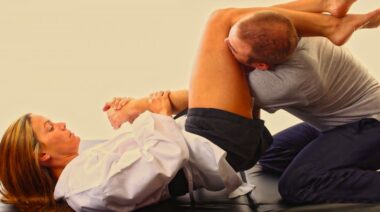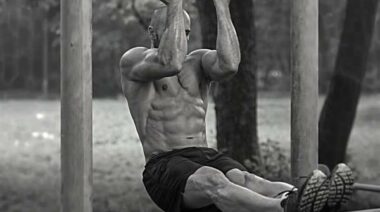I’ve had the opportunity to train at a variety of grappling academies. Eventually word gets out that I have a PhD. Some people’s reactions are funny; they get a little indignant and ask me why I never mentioned it previously. I usually give the askers the first part of the honest answer, which is, “It’s not relevant on the mat.”
The second part of the answer is, “And if I were to mention it here, it would just be to bolster my self-esteem.” I’m proud of the fact I earned a doctorate. And in some of my occupational contexts, I’ve gotten used to being referred to as Dr. Worthington, though it took some doing given that when I was growing up, “Dr. Worthington” was either one of my parents. The PhD commands respect. That doesn’t suck, and it opens some doors. Plus, it enables me to help my friends; I’ve written more than one recommendation for people applying for jobs, and there’s something about seeing those three letters in a signature that makes people sit up straighter, clear their throats, and smooth their hair when they read them, even if they are alone.
So why am I explaining this? Because I needed some strokes? Well, that’s not the ONLY reason. The other reason is that I’ve been thinking about the notion that when we ask each other and ourselves to leave our egos at the door to the BJJ academy, we’re actually leaving far more. In a very real way, we’re leaving our identities.
We are many things to many people. To my university students and colleagues, I am Dr. or Professor Worthington, who discusses learning theory and the best ways to teach psychology. To my niece and nephew, I am Aunt Val, who tells knock-knock jokes and plays freeze tag. When my parents were angry with me when I was growing up, I was VALERIE LYNN, who spent too much time on the phone or had spilled the cat food. To direct mail campaigns that get my name wrong, I am Mr. Valery Washington, who apparently has the illegible handwriting of a serial killer (yes, I still get junk snail mail).
But on the mat, I am none of these people. The identities I excel in and for which I have earned some status—or at the very least from which I derive some comfort and familiarity – have zero meaning in jiu jitsu. All that matters there is what I do in class and how well I follow the rules of grappling and being a grappler. In effect, I become a different person when I train, both in terms of how I view myself and how I am viewed by others.
I daresay all of us have to take on a grappling identity when we enter the academy, that who we are outside is irrelevant on the mat except insofar as it affects how we behave as grapplers. And for some people, that might be difficult to do, as we are variously stripped of or saddled with status and responsibility depending on what our grappling identities require.
In my experience, this applies to other domains as well; I felt the same sense that completely different rules applied when I started CrossFit and weightlifting. Any time we reach beyond the boundaries of what we typically experience and who we typically are, we have to leave our “normal” identities behind. Or perhaps another way to look at it is that we are adding facets to those normal identities. It’s just that the ones we are taking on are still uncomfortable and require some breaking in. Of course, I’m still breaking in my grappling identity after many years, as it changes over time.
So the next time you think about what it means to leave your ego at the door, consider that you may be leaving much more than that. You still have to do it – we all do – but maybe knowing why it’s difficult will actually make it easier to do.






